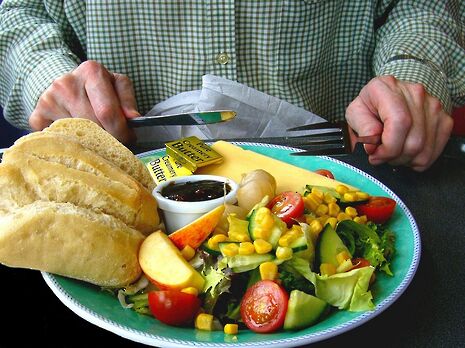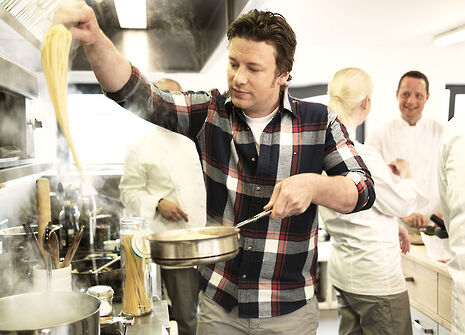
Why healthy eating is a class issue
A balanced diet is a privilege few can afford, argues Violet food columnist Jess Lock

Dear Health Fanatics of the World,
I can’t afford to eat like you. I respect the food choices you make and appreciate they may feel right for you. Please don’t preach your way of living, though. My tight bank account can’t stretch to fit your spendy ways and I know I’m not alone.
I believe eating in line with your own convictions is important – vegan, paleo or juicer, you do what makes you feel best. However, eating in these ways is also a privilege only certain people can subscribe to.
Of course, Cambridge is no stranger to privilege. Walking down King’s Parade through a sea of mainly white, fairly rich, largely middle-class students, it’s difficult to ignore. Yet the idea of food privilege and the discrepancy between healthy eating and class remains a heavily contested issue.
In general, the middle and upper classes have no monetary issues heeding advice to cull fat consumption, nor do they struggle to take regular trips to the gym, source their five-a-day (or ten-a-day, as is now being suggested…), make smoothies in their high-end blenders, or resist the temptation of a Burger King splurge.
“In a choice between a single 90p avocado and a 72p, 320g bag of chicken nuggets, which will be a priority when feeding a family?“
What if you’re an unskilled, low-income single parent with three little mouths to feed, a full-time job, rent to pay, and pairs of school shoes that need to be bought?
I’d hazard a guess that your priority might be keeping your kids’ feet covered and providing enough calories to keep their tummies full at school. I’d suggest that you’re not going to give too much thought to whether your NutriBullet will effectively dice your kale, how your pasta is processed, or if your pomegranate seeds are more nutritionally dense than your quinoa.
We already know frozen or fast-foods tend to be cheaper, and their bulk availability makes them an incredibly useful foodstuff. These foods are quick, easy and, most importantly, cheap. And, of course, it is definitely still possible to maintain a decent standard of health while eating the cheapest, most filling food available. The issue lies in the privilege of choice. When these foods are the only ones available, there’s a privilege problem.

A study by Harvard School of Public Health found that eating a diet full of fruits, vegetables, fish, and nuts cost about $1.50 (£1.20) more per day, per person than eating an unhealthy diet (heavy in processed foods and refined grains). That’s an extra $2,200 (£1765) per year for a family of four. If you’re scraping pennies, that’s a whole lot of money to be missing out on.
“But lentils are cheap!” I hear you cry. “Aldi has a super-six deal! M&S always reduce their veg!” Cambridge’s own ‘Vegan Holly’ regularly touts her food shops as inexpensive and accessible to all (even on a student budget!).
“We must acknowledge, and condemn, the inaccessibility of healthy foods for those from poorer backgrounds”
Factor in the time she takes preparing these meals (and the snacks in between), the time-constraints on fast-perishing foods, the sheer amount of food she requires for a filling meal, and then apply this to a working, multi-child, lower-income family: oat bowls and chai seeds can never really be a feasible option.
In a choice between a single 90p avocado and a 72p 320g bag of chicken nuggets, which will be a priority when feeding a family? There might come a time when you’re struggling to put food on the table and believe me, if that happens, a few sultanas and some dried banana will not be a treat. Healthy eating is not just a choice, but a privilege.
We must acknowledge, and condemn, the inaccessibility of healthy foods for those from poorer backgrounds, but diet-shaming isn’t an effective solution to health issues. The sugar tax, for example, is just another way the government makes the lives of our most vulnerable citizens a little bit shitter. It perpetuates food privilege. It becomes a tax to stop poor people engaging in ‘bad’ behaviour, but not rich people (because, let’s face it, unless you’re scrimping, is a 10p surcharge going to put you off that Mars Bar?).
While you’re here at Cambridge, you too will experience many privileges. Student support in bursaries, grants and finances should enable us all to eat and live well. We should all pause and acknowledge that eating, in general, is still a privilege – even though it should be a human right. Food, and healthy eating, is fundamentally a class issue

